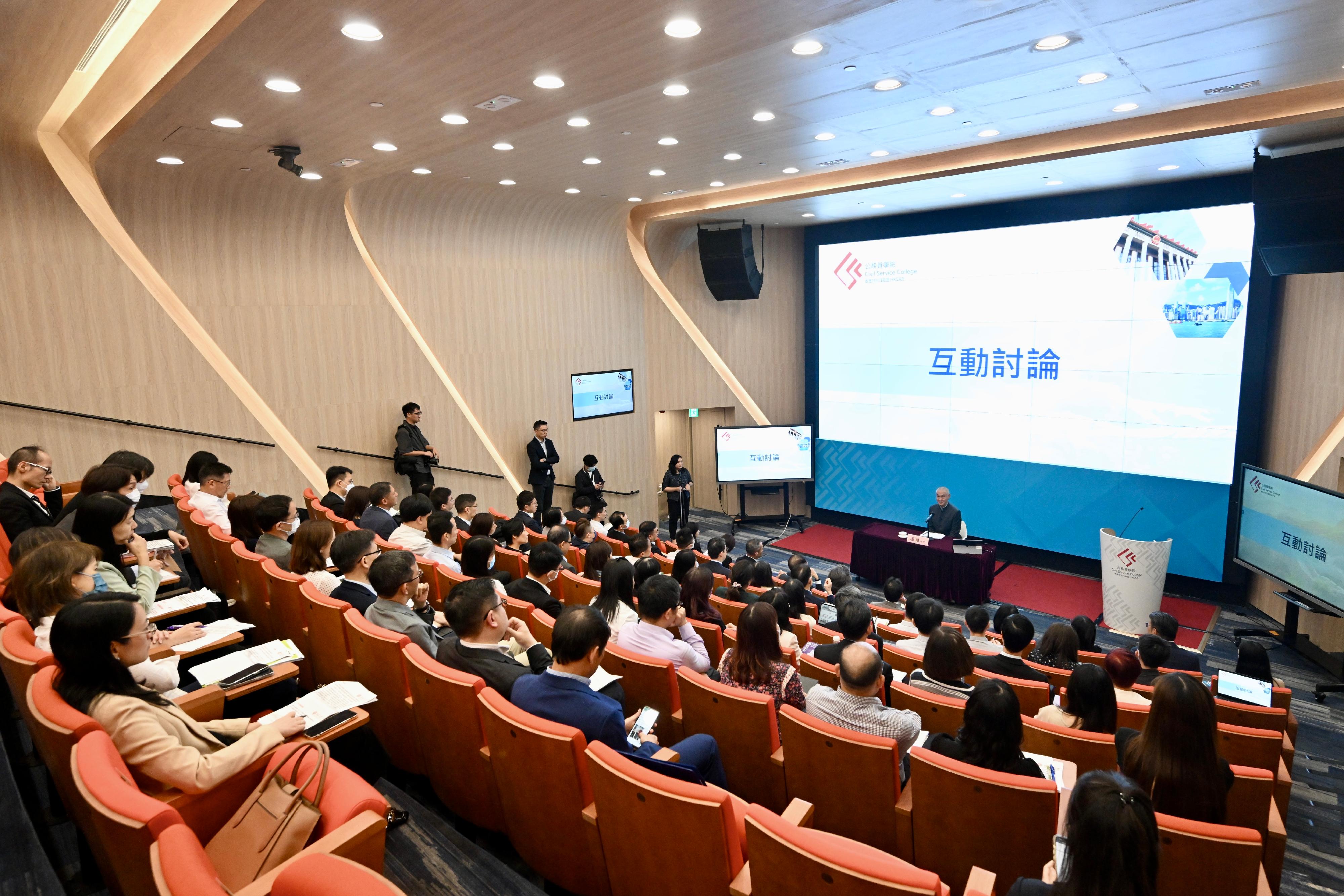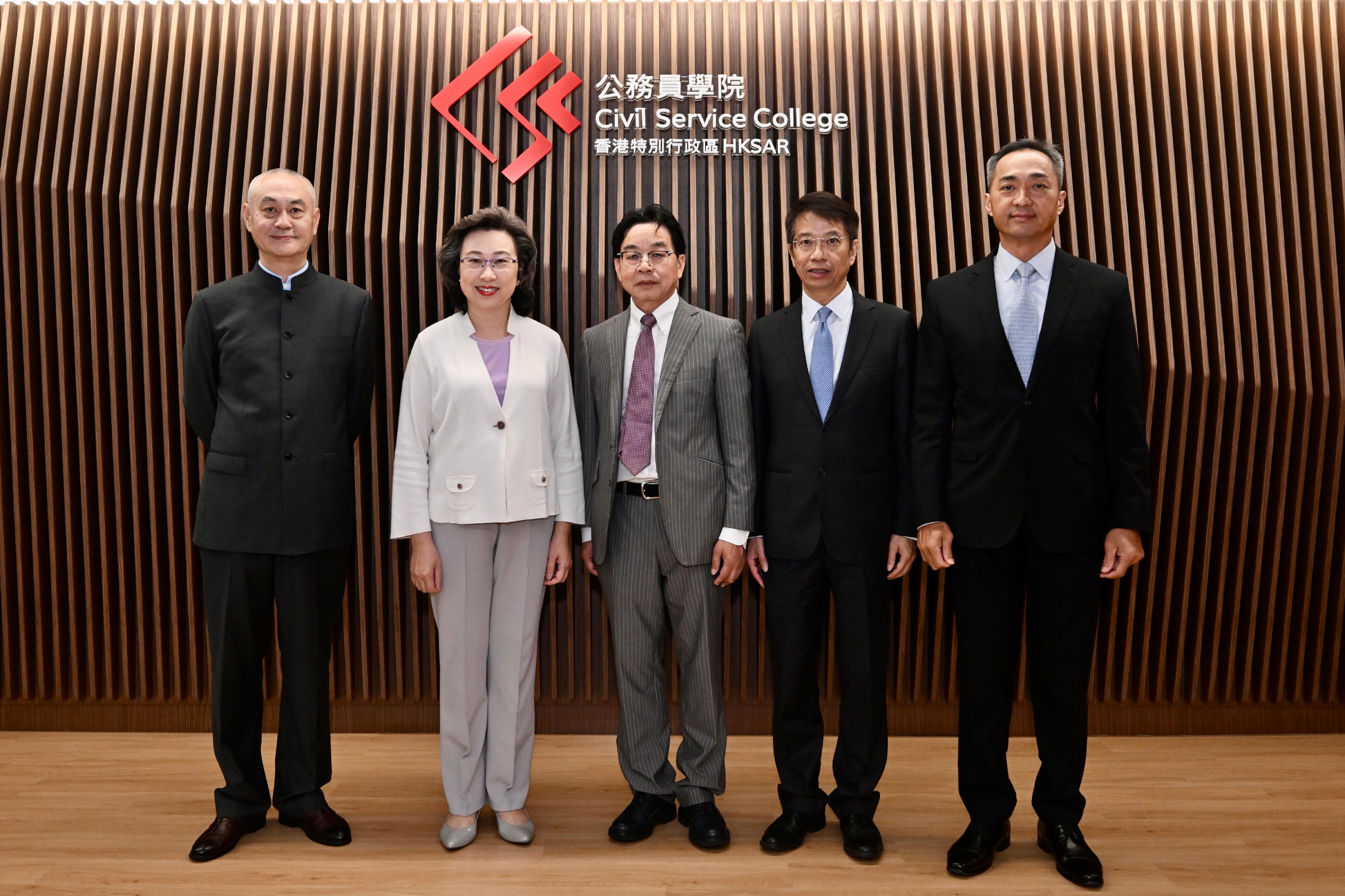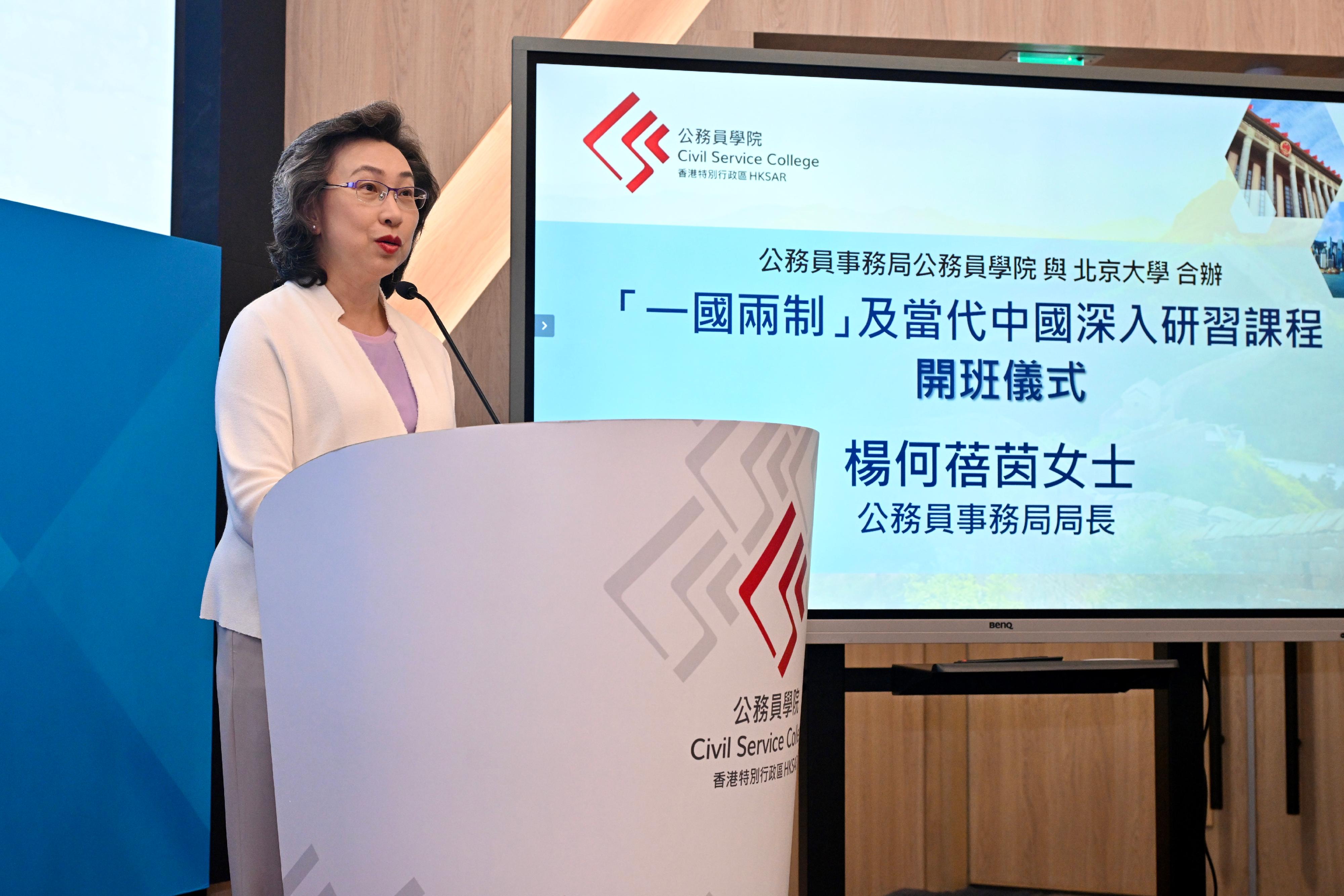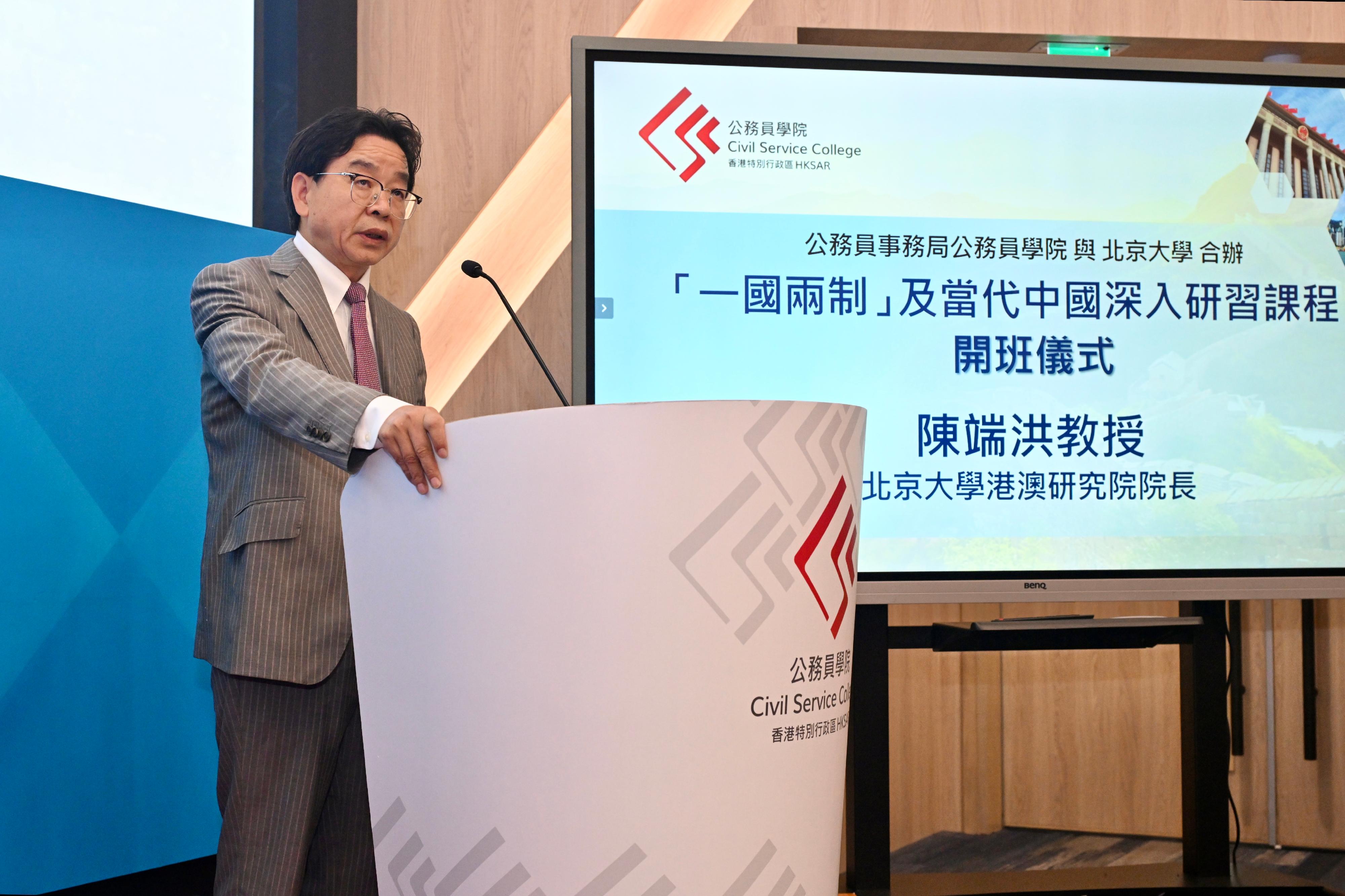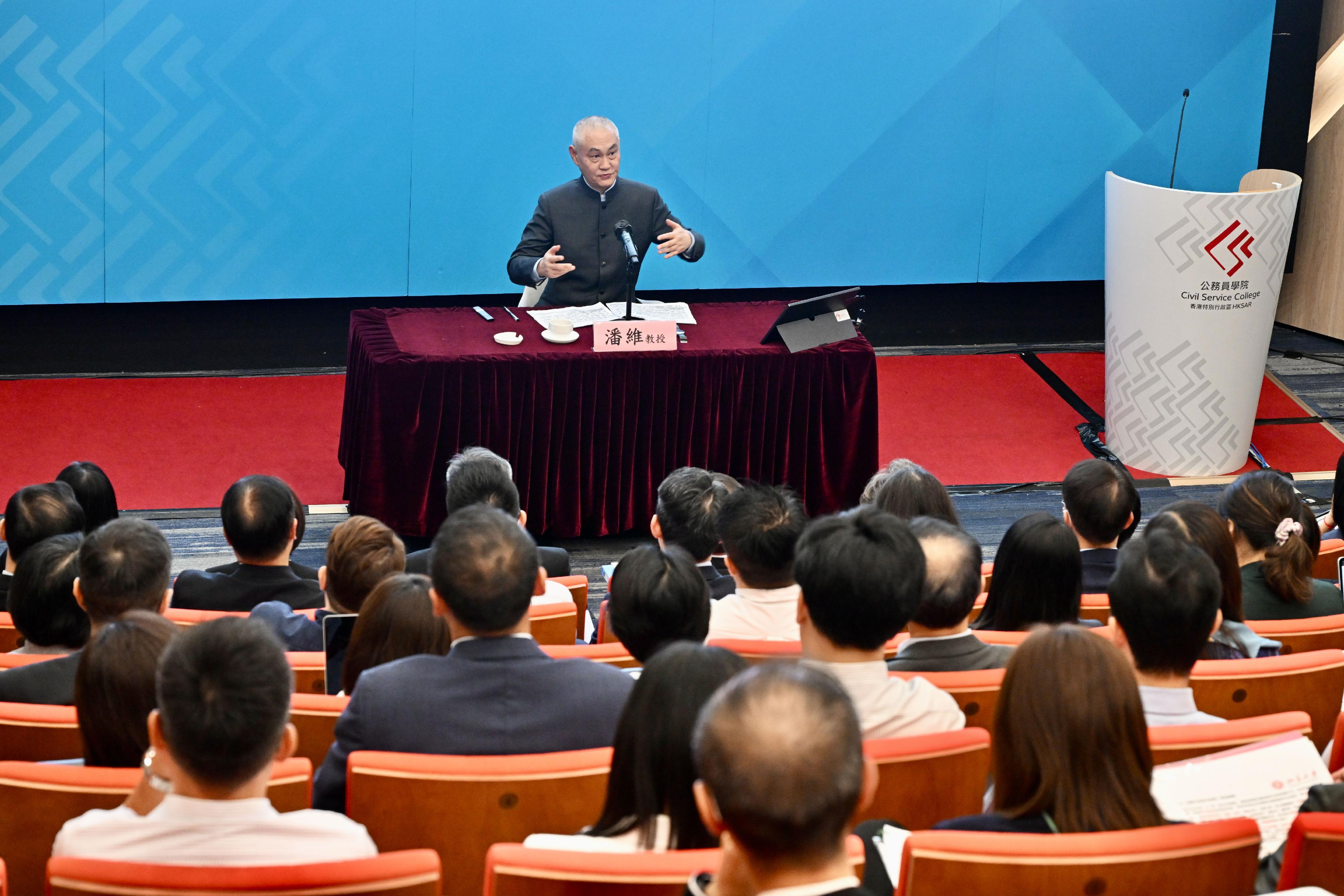The Civil Service College (CSC) of the Civil Service Bureau, in collaboration with the Institute for Hong Kong and Macau Studies, Peking University, organised a new in-depth programme on "one country, two systems" and the contemporary China. The programme was launched today (July 18) with a lecture conducted at the CSC and online attendance available to further strengthen training for senior officials and directorate civil servants.
The Secretary for the Civil Service, Mrs Ingrid Yeung, and the Director of the Institute for Hong Kong and Macau Studies, Peking University, Professor Chen Duanhong, officiated at and addressed the inauguration ceremony of the programme. The Permanent Secretary for the Civil Service, Mr Clement Leung, and the Head of the Civil Service College, Mr Oscar Kwok, also attended the ceremony.
In addressing the ceremony, Mrs Yeung expressed her gratitude to the Hong Kong and Macao Affairs Office of the State Council and Peking University for their support for the programme. She said that the programme aims at providing senior officials and directorate civil servants with a more comprehensive understanding of the practice of "one country, two systems" as well as the country's macro policy and development, with a view to supporting Hong Kong to actively integrate into the overall development of the country.
She appealed to the participants to seize this valuable opportunity to understand the country's governance strategies and have in-depth exchanges with scholars of different areas of expertise with a view to broadening their horizons. Participants, in their respective positions, should formulate more people-oriented policies and initiatives, so as to jointly contribute to the steadfast and successful implementation of "one country, two systems".
Following the ceremony, the first lecture was held on the topic of "The Communist Party of China (CPC) and Contemporary China", delivered by Professor of School of International Studies of Peking University Professor Pan Wei, who shared with the participants the constitutional status and governance philosophy of the CPC, and its relationship with "one country, two systems".
Around 70 participants attended the programme at the CSC. In addition, over 100 politically appointed officials and other directorate officers enrolled and sat in the lecture via video conferencing.
In the 2022 Policy Address, the Chief Executive set forth the goal of enhancing civil service training to deepen civil servants' understanding of "one country, two systems" and the contemporary China, and broaden their global perspectives. The CSC and the Institute for Hong Kong and Macau Studies, Peking University, jointly organised the in-depth programme on "one country, two systems" and the contemporary China for officers at D1 and D2 rank with potential for advancement.
The programme consists of 12 monthly lectures in two parts: "one country, two systems" and the contemporary China. It covers a wide range of topics, such as the CPC and the contemporary China, socialism with Chinese characteristics, the theory and practice of "one country, two systems", as well as developments in contemporary Chinese society, economy, national defence, technology, and more. Distinguished scholars from the Mainland will deliver the programme and engage in in-depth discussions with participants.
Follow this news feed: East Asia






